#Japanese fantasy literature
Text
Shocking fantasy What is the appeal of "Henn na Ie", a work that represents modern Japanese literature?
“Weird House” by Amena
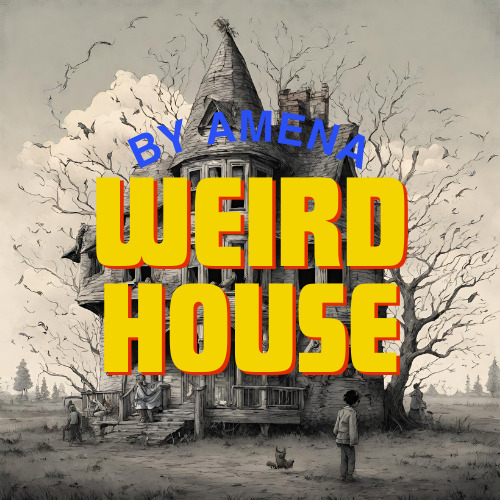
Japanese author Amakura's book "Henn na Ie" is becoming well-known as an illustration of contemporary Japanese fantasy writing. This book has the ability to captivate readers by immersing them in an enigmatic universe while portraying an odd family and their peculiar existence.

The protagonist of the novel first encounters a family one day who reside in a structure known as "Weird House." The protagonist becomes drawn into the everyday lives and mysteries of this family because they have unique talents and secrets that set them apart from other families. The narrative prompts us to consider family ties and the significance of interpersonal relationships via their lives and experiences.
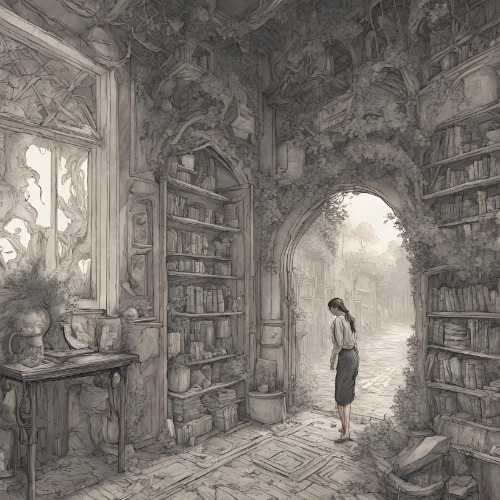
Ameana's deft brushwork deftly blends imagination and reality, drawing readers into an enigmatic realm. The characters' struggles and feelings are skillfully portrayed, giving the narrative more complexity overall. Readers are encouraged to connect with the characters and become fully engrossed in the narrative by their personalities and past experiences.
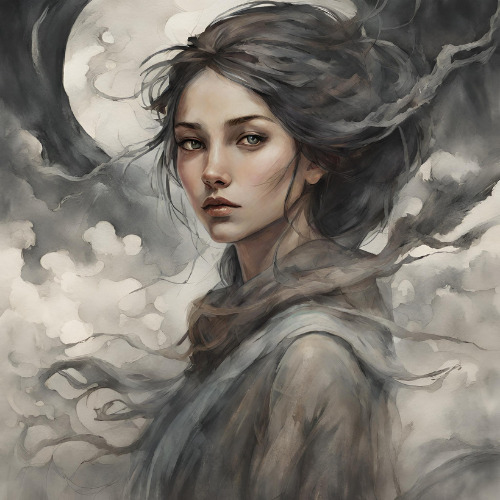
A work of contemporary Japanese fantasy literature, "The Strange House" is certain to stimulate and provide readers with novel sensations. Readers will be captivated and inspired to use their imaginations by Ameana's distinct worldview and narrative structure. Readers will be left pondering and feeling inspired by their examination of relationships and family.
#Japanese fantasy literature#Modern fantasy literature#Japanese novels#Strange family#Family bonds#Significance of human relationships#Mysterious world#Imagination and reality#Description of emotions#New sensations#Americana's worldview#Storytelling#Human Drama#Family Mystery#Charm of Reading
0 notes
Text
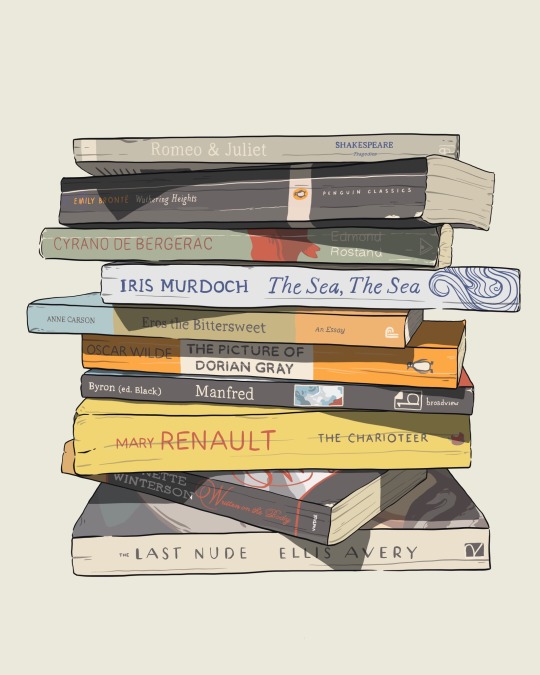


A few of my favourite commissions so far. No specific reason other than I really liked how these turned out!
Shop
#my art#artists on tumblr#books#booklr#bookstack#saga#the picture of dorian gray#every heart a doorway#convenience store woman#japanese literature#scifi#fantasy books
526 notes
·
View notes
Text

Autumn leaves now fall, Love's bright flame turns cold and gray, Farewell whispered soft.
-Ryu
#dark acamedia#dark aesthetic#dark fantasy#poem#poems on tumblr#dark academia aesthetic#books and reading#currently reading#light academia aesthetic#poems#haiku poetry#autumn#brown aesthetic#poetry#spilled ink#writterscommunity#books and literature#light academia#quotation#japanese#excerpts#leaves
21 notes
·
View notes
Text
Kafka on the Shore, a tour de force of metaphysical reality, is powered by two remarkable characters: a teenage boy, Kafka Tamura, who runs away from home either to escape a gruesome oedipal prophecy or to search for his long-missing mother and sister; and an aging simpleton called Nakata, who never recovered from a wartime affliction and now is drawn toward Kafka for reasons that, like the most basic activities of daily life, he cannot fathom. Their odyssey, as mysterious to them as it is to us, is enriched throughout by vivid accomplices and mesmerizing events. Cats and people carry on conversations, a ghostlike pimp employs a Hegel-quoting prostitute, a forest harbors soldiers apparently unaged since World War II, and rainstorms of fish (and worse) fall from the sky. There is a brutal murder, with the identity of both victim and perpetrator a riddle—yet this, along with everything else, is eventually answered, just as the entwined destinies of Kafka and Nakata are gradually revealed, with one escaping his fate entirely and the other given a fresh start on his own.




#book: kafka on the shore#author: haruki murakami#genre: japanese literature#genre: magical realism#genre: fantasy#year: 2000s
10 notes
·
View notes
Note
Can someone enjoy a work and criticizing it at the same time? Sorry if this ask so sudden.
Yes.
The Wittebane lore got me interested in The Owl House in the first place and introduced me to a passionate fandom, which included @anglerflsh. The way "Watching and Dreaming" did it dirty by ignoring all the build-up from Season 2 to the first two episodes of Season 3 is so egregious. I've had bad times among the fandom, but it's been great to find people with whom I could discuss the show from a critical lens on Tumblr and the Discord server of @mdhwrites.
Philip would absolutely get along with Bai Jin from Karakuri Circus over having older brothers who abandoned them and everything they stood for—even though both of them had looked up to and had the closest bonds with their brothers since childhood—and how the writers did them dirty by neglecting their backgrounds and misrepresenting their motives. I count Bai Yin among the worst brothers in fiction alongside Yuguro Musa from Moribito II: Guardian of the Darkness and Akio Ohtori from Revolutionary Girl Utena. It's egregious how Fujita refuses to criticize him as much as he does with Bai Jin given the themes of love and relationships in the manga.
As for Witch Hat Atelier, I love Tartah's arc in which he finds a way around his disability and the Romonon arc in which the apprentices complement each other, helping them grow up—Richeh's and Eunie's backstories are among the greatest in the series and Eunie's internal struggles connect with the lore too! I wish Shirahama had been more resolute in criticizing the rigidity and cruelty of witch society like she did with Coco's, Agott's, Tartah's, Richeh's, and Eunie's backgrounds.
Why is Qifrey not allowed to convey his struggles through his own voice like the apprentices, Luluci, and Dagda? Why do almost every bad adult figure—including Beldaruit who partook in the neglect of Qifrey by the adults around him and blames his own apprentice for being the way he is due to it—escape a call-out for their behavior unlike Luluci's teacher? Why are the Knights Moralis allowed to act like judges, juries, and executioners? Why do they threaten to erase people's memories first instead of asking questions whenever they show up? Why do they not pursue the Brimmed Caps as much as Qifrey has been doing on his own when they are supposed to enforce the law of magic? Where are detectives and attorneys? Why has Luluci been granted kindness and understanding when everyone else—even Agott from the prestigious house of Arkrome—receives nothing but cruelty and ignorance from the Knights Moralis?
Speaking from experience, I find people to be more open to criticism for The Owl House than for Witch Hat Atelier. People such as @imsosocold, @let-us-cultivate-our-garden, @mdhwrites, @peacesmovingcabaret, @the-enchanted-archivist have talked about the flaws of The Owl House but I've never seen anyone examining the series from a critical lens like them on Tumblr or Discord.
#The Owl House#toh critical#toh criticism#Philip Wittebane#Emperor Belos#Caleb Wittebane#Wittebane brothers#Karakuri Circus#Bai Jin#Bai Yin#Kazuhiro Fujita#Moribito#Nahoko Uehashi#Japanese literature#fantasy literature#children's literature#Yuguro Musa#Revolutionary Girl Utena#Akio Ohtori#Witch Hat Atelier#Tongari Boushi no Atelier#Kamome Shirahama#Tartah#Richeh#Eunie Witch Hat Atelier#Eunie WHA#Coco Witch Hat Atelier#Coco WHA#Agott Arkrome#Qifrey
27 notes
·
View notes
Text
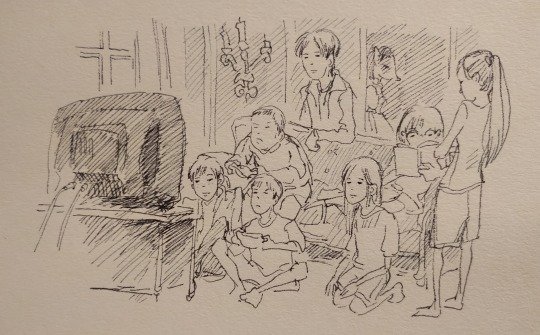
From Lonely Castle in the Mirror by Mizuki Tsujimura
Art by Yue
#illustration#lonely castle in the mirror#mizuki tsujimura#Japanese literature#literature#fantasy#books#books & libraries
66 notes
·
View notes
Text
Fantasy throughout the world
On top of having an article centered around the French fantasy specifically, the "Modern Success" issue of the BNF Fantasy series also has an article (again written by Anne Besson) covering the topic of "Fantasy throughout the world". Here is, once again, a rough translation by your humble servant:
While heavily dominated by an English-speaking production, fantasy literature found its place in numerous European countries, and managed to cross several continents.
Born in England, grown in parallel on the two sides of the Atlantic oceans, and becoming a mass-phenomenon in the United-States, fantasy is without a doubt an anglophone genre. Even today the fantasy market has a MASSIVE unbalance, and the modern fantasy successes prove that the mondialization of the imaginations is dominated by the cultural superpower of the USA. But ever since the 1970s, as the translations of Tolkien spread across the world and role-playing games conquered the heart of teenagers, "native fantasies" started to appear in various European languages.
German fantasy is a good example of one of those "local takes" - it does help that Germany has a literary background including the Romantic movement, and the brothers Grimm fairytales. After the enormous success of Michael Ende's Never-Ending Story in 1979, the German fantasy did not stop. Many successful authors appeared. Wolfgang Hohlbein gained an internal fame, with his 1982 Märchenmond or his 1999's Chronicles of the Immortals. Cornelia Funke was a famous German youth author, with her trilogy "Inkworld" in 2003. Kai Meyer reworked Germanic legends in his 1998's Loreley or his 2001's Nibelungengold. Walter Moers created the continent of Zamonia, and popularized the character of Captain Blue-Bear (hero of a 1993's children television show, of two novels, and of a 1999's movie).
But very often, international fame only latches on one specific author that is well-known outside of their country's frontiers. In Poland, this author would be Andrzej Sapkowski with his 1986's Witcher series, adapted in 2007 as a video game, and in 2019 as a television series). In Spain, it would be Javier Negrete with his 2003's Tramorea.
Crossing the continents, it becomes very tempting to mix together the magic of fantasy literature with specifically cultural supernatural domains - the Hindu pantheon, the Chinese ghost stories, the kami and the yokai of Japan, the witchcraft of Africa or the Caribbean Isles...
South-America is rich of a literary tradition that in France we compare to our own "fantastique": the short stories of Argentina's authors Jose Luis Borges or Adolfo Bioy Casares in the 40s, the magical realism of Alejo Carpentier in Cuba (The Century of Lights, 1962), of Gabriel Garcia Marquez in Columbia (A Hundred Years of Solitude, 1967) or Carlos Fuenta in Mexico (Terra Nostra, 1975).
On the side of the African continent, The Road of Hunger, in 1991, by Nigerian author Ben Okri, is also part of this more "legitimate" current, a form of fantasy much closer to "general literature", but there is a new African generation, dominated by English-speaking women (Nnedi Okorakor, Nisi Shaw, Lauren Beukes) that fully appropriate and absorb the fantasy genre.
Up until a very recent date, it was considered more respectful to not assimilate these works, born of very different cultures, with a genre that is both modern and Anglo-Saxon. However, the numeric world and the mondialized economy have today destroyed a lot of cultural frontiers, and today we assist to a true "meeting of the imaginations" mixing various cultures together. The author of this article mentions as an example several works coming from East-Asia: the Japanese manga Full Metal Alchemist by Arakawa Hirowu, the other Japanese manga Witch Hat Atelier, or the Sino-American movie The Great Wall (2016).
#fantasy literature#foreign fantasy#fantasy references#fantasy novels#german fantasy#non-english fantasy#polish fantasy#spanish fantasy#african fantasy#european fantasy#japanese fantasy#fantasy throughout the world
9 notes
·
View notes
Text
I have a question that has been bothering me for a while and I need answers NOW!
When you are reading any type of fanfic(in english) of an anime or any japanese media...do you hear the dialogues of the characters in japanese in your mind?
#fanfiction#literature#granblue fantasy#twisted wonderland#tagging the fandoms I am part of for reach sorry I need to get this out of my brain lol#fandom#japanese
6 notes
·
View notes
Text
Prompt #48: Date a God for a Day
The gods have come down to Earth. That is, all gods to have ever existed in human stories throughout the world (Greek, Norse, Japanese, Hindu, Egyptian, Polynesian, Chinese, Celtic, Germanic, Persian, Babylonian, African, Mayan, Inca, Aztec, Finnic, Native American, Buddhist, Australian Aboriginal, etc.). They are fascinated by how human culture has evolved and - after outlawing war and ensuring everyone’s living standard goes up just by being a huge, magical deterrent to evil - decide to spend some time among humans. Cue strange game shows such as “Date a God For a Day”. Your character is the lucky winner of one such blind date, with a deity of your choosing.
#creative writing#literature#story writing#writeblr#writing#writing prompt#writers and poets#fantasy#romance#gods#deities#mythology#greek mythology#indian mythology#norse mythology#japanese mythology#egyptian mythology#polynesian mythology#chinese mythology#celtic mythology#middle eastern mythology#native american mythology#south american mythology#germanic mythology#game shows#blind date
7 notes
·
View notes
Text
"What a wretched life I led! And yes, I knew. Of course I knew that there were innumerable things in this world incomparably much harder and more terrible than what I was going through right then. But just for that moment, I wanted permission to crank my unhappiness gauge to the max. I’d dial it back down, I promised to dial it back down right away. By the day after tomorrow at the latest."
— There's No Such Thing as an Easy Job by Kikuko Tsumura (Polly Barton, Engl. translator), first pub. 2015, Japan
#There's No Such Thing as an Easy Job#Kikuko Tsumura#Japanese literature#magical realism#contemporary#contemporary fiction#fantasy#adult fiction#asian literature#books#book quotes#quotebook#on life#quotes that made me laugh
8 notes
·
View notes
Text
My Month in Books: September and October 2023
The Fellowship of the Ring by J.R.R. Tolkein
Autumn means a lot of things to a lot of different people. For some it means scary stories around a campfire, for others it means pumpkin spice lattes and cozy scarves. For me, it will always mean Hobbits. Nothing feels more natural to me as reaching for Tolkein as soon as I see the leaves start to change colour. I won’t insult your intelligence by…
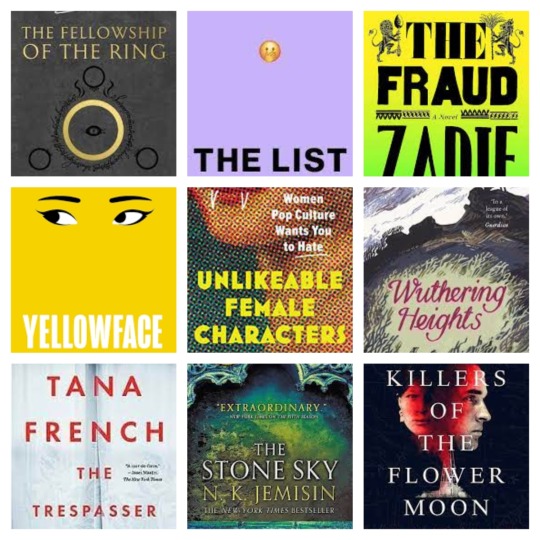
View On WordPress
#anna bogutskaya#baba yaga laid an egg#ben aaronovitch#book recommendation#book review#books#brandon sanderson#classic literature#david grann#dubravka ugrešić#emily brontë#fantasy#fiction#folklore#fragile things#gothic literature#horror#horror stories#j.r.r tolkein#japanese literature#japanese mythology#killers of the flower moon#kwaidan#lafcadio hearn#lord of the rings#michiko aoyama#mistborn#moon over soho#mystery novel#mythology
4 notes
·
View notes
Text
If you like... Mythological Fantasy
This week we have a genre freebie for Top 10 Tuesday, and I am going with Top 10 Mythological Fantasy Books. I really do like a plot where the gods get interested in mortal affairs, leading to much chaos — and great world-building.
1 / The Chalion Series / World of the Five Gods series by Lois McMaster Bujold
2 / Inheritance Trilogy by N. K. Jemisin
3 / Paternus Trilogy by Dyrk Ashton
4 /…

View On WordPress
#fantasy-fiction#favorites#graphic novels#Japanese Literature#listmania#mythology#TBR pile#top10tuesday#Urban Fantasy#worldbuilding
3 notes
·
View notes
Text

jennifer
xx
cybersec student
teaching myself japanese and italian
lover of literature

7 notes
·
View notes
Text
What I've Been Reading Lately: November 15
What I’ve Been Reading Lately: November 15
Welcome to What I’ve Been Reading Lately, a feature where I’ll be giving short reviews of what I’m currently reading:
(more…)

View On WordPress
#Author Talks#Book Series#Books#British mysteries#Claire McFall#Clare Mackintosh#Diverse Stories#Fantasy#Fantasy Books#Holiday Mysteries#Holly Jackson#Irish Authors#Irish Mysteries#Japanese#Japanese literature#Laura Steven#Mangas#Mysteries#Mystery#Mystery & Thriller#Nikita Gill#Nonfiction#Poetry#Supernatural#UK#UK Books#UK YA#UK YA Books#Witches#YA Novels
2 notes
·
View notes
Text
How to do a pure evil antagonist while exploring their background: Yuguro Musa from Moribito II: Guardian of the Darkness by Nahoko Uehashi
How not to do a pure evil antagonist while exploring their background: Emperor Belos/Philip Wittebane from The Owl House
#The Owl House#toh critical#toh criticism#Philip Wittebane#Emperor Belos#Nahoko Uehashi#Moribito#Yuguro Musa#Japanese literature#fantasy literature#children's literature
23 notes
·
View notes
Quote
If you but chose, you could see the structure of this world in its entirety, couldn't you? Then do so. So that you can judge what can and cannot be, and accept your fate accordingly.
The Beast Player, Nahoko Uehashi
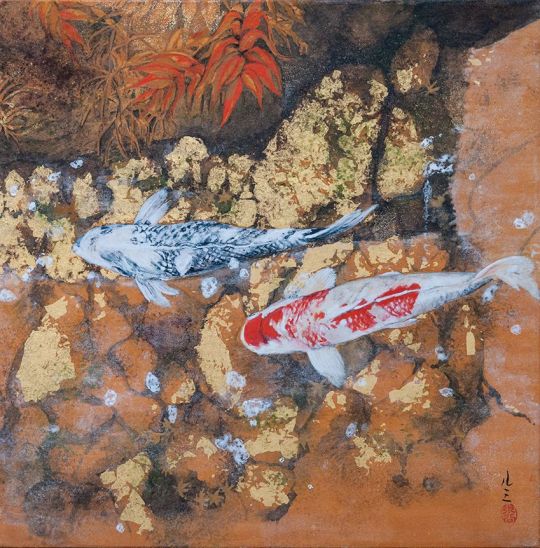
Art by Lumi Mizutani
2 notes
·
View notes